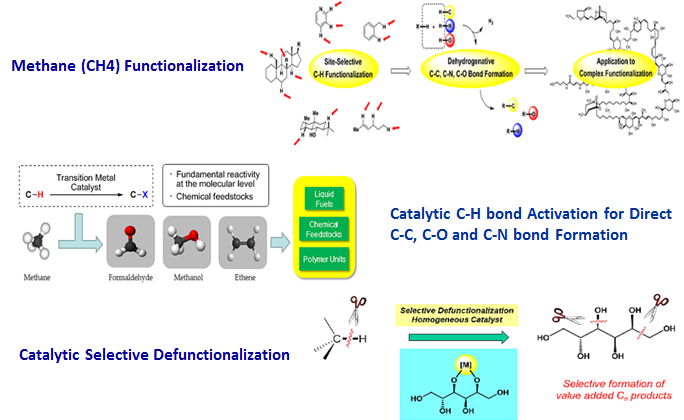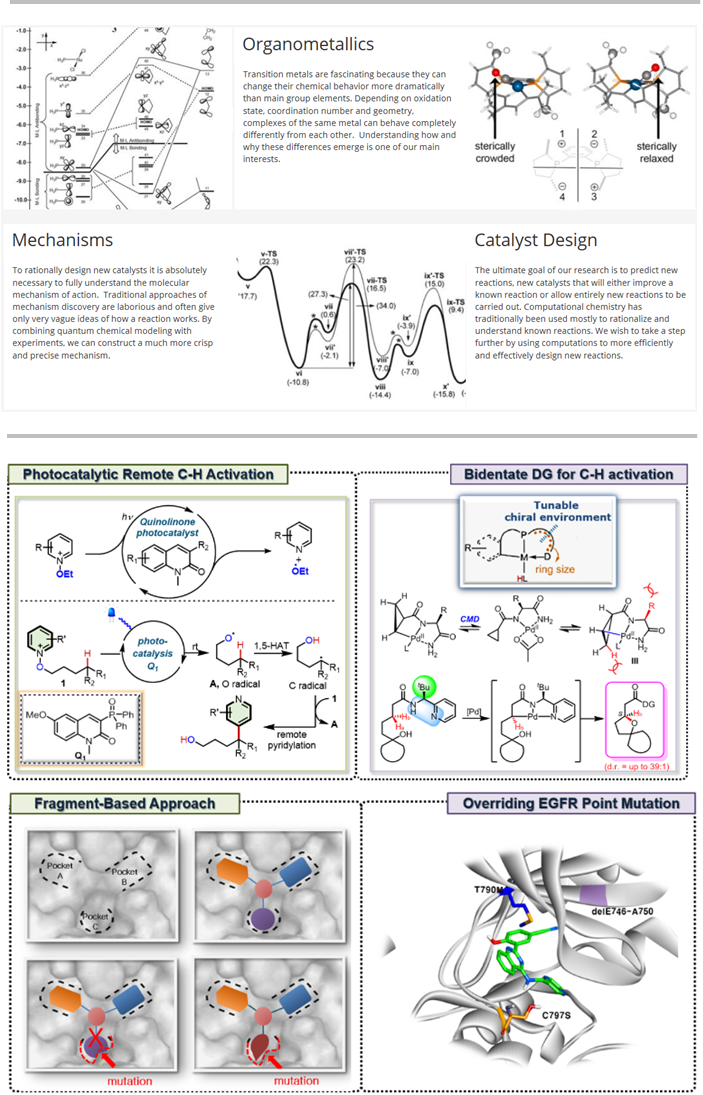mainmenu
Research
Research
The main areas of research at the Center for Catalytic Hydrocarbon Functionalizations are the development of new catalytic reactions, and the identification of associated mechanisms (especially the carbon-hydrogen bonds in hydrocarbons that exhibit low reactivity, and those that are activated and applied to produce organic chemical reactions or total synthesis. The center is using catalytic methods to study the mechanisms underpinning the application-reaction processes that integrate various functional groups with hydrocarbons. Hydrocarbons exist naturally in large volumes, but cannot be easily exploited as source materials for organic synthesis or chemical processes owing to their low reactivity under mild conditions.
To overcome this problem, it is essential to develop an effective and selective catalytic system. Such a system will provide the necessary sound basis for chemical reactions, and ultimately offer a wide range of applications, including the synthesis of natural substances, plus applications used in materials chemistry and the pharmaceutical industry. By first identifying the basic principles underlying the carbon-hydrogen bond-activation process in low-reactivity organic molecules, the center aims to develop a system that enables mediation via metal catalysts for practical application of reactions in organic chemistry. Our ultimate goal is to continually develop innovative science and technology (S&T) solutions that go beyond the boundaries established by the chemical-materials industry. We can achieve this by applying the catalytic system to the integration of useful functional groups in methane-based hydrocarbons. The center plans to conduct research into the development of a selective, defunctionalized catalyst system of bio-compounds designed to obtain massive amounts of glucose.




